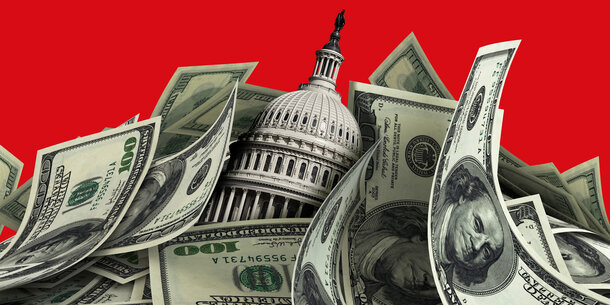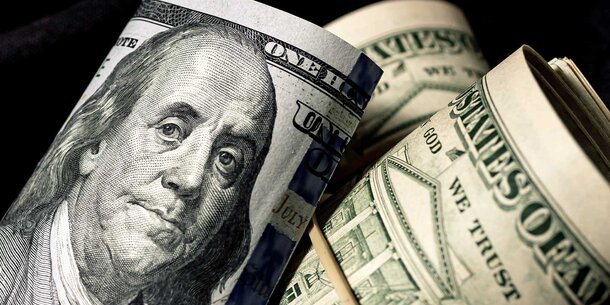With campaign spending on last week’s crowded New Jersey gubernatorial primary topping $122 million, the governor’s race is on pace to be the most expensive election in state history. The prior record was set in 2005 when the primary and general elections together cost approximately $144 million, adjusted for inflation. The majority of the spending this year, $67.6 million, came from super PACs rather than campaigns. Super PAC spending for the primaries has already eclipsed its prior record for an entire election year of $42 million in 2021.
The contest is the latest example of elections being increasingly taken over by groups that can raise and spend unlimited amounts, a system created by the Supreme Court’s 2010 Citizens United decision and the equally misguided theory that if the candidate doesn’t get the money directly, there’s no risk of corruption. Citizens United has led to runaway spending by wealthy interests in federal elections, and now state races are following suit.
Super PACs are allowed to raise unlimited sums because they are legally independent of campaigns, which faced $5,800 limits on contributions in this primary. But candidates try to guide supportive outside groups. It’s common for campaigns to publish photos and videos for super PACs to use in ads, and they put out strategy memos that signal how super PACs could help, as Democratic nominee Mikie Sherrill and others’ campaigns did.
Sherrill was boosted by $3.8 million from One Giant Leap PAC. Its biggest donations include $900,000 from a PAC funded by the Laborers International Union, $250,000 from DoorDash, and $200,000 from tech entrepreneur Reid Hoffman, a resident of Washington State.
Republican nominee Jack Ciattarelli benefited from $1.3 million in spending by Kitchen Table Conservatives, which garnered $500,000 from a group funded by Uber Technologies, $100,000 from investor Alan Fournier, and $90,000 from Garden State Success, an education advocacy group with major funding from an Oregon dark money group, Campaign for Great Public Schools. (Garden State Success also gave $160,000 to One Giant Leap.)
In another indication that candidates can view supportive super PACs as essentially an alter ego of their campaigns, Sherrill sent $127,500 from her congressional campaign committee to One Giant Leap. The congressional campaign of Rep. Josh Gottheimer (D) dwarfed that amount, however, transferring $11.7 million to a super PAC in his corner, Affordable New Jersey. Transferring these large sums to nominally independent groups allows candidates to evade laws that would restrict them from moving money directly from a federal committee to a state one.
The primary also featured one of the starkest examples yet of a campaign outsourcing its operation to a super PAC. New Jersey Education Association union president Sean Spiller, who finished fifth, raised less than half a million dollars for his campaign account. But his union fully funded a super PAC that spent over $37 million on his failed bid, an example of how union member dues or corporate shareholder value can be funneled into campaigns.
The contest also illustrated the trend of out-of-state and national interests disguising their spending by setting up groups with local-sounding names, something that can mislead voters because the group name appears in source disclaimers on political ads. Uber, headquartered in California, set up Fair & Affordable New Jersey and funded it with $3.7 million. The group also donated $500,000 to Kitchen Table Conservatives, favoring Ciattarelli, and $1 million to a group called Workers for a Better New Jersey that backed unsuccessful Democrat Steve Fulop. And the national Democratic Governors Association set up a group called Greater Garden State with $100,000.
Candidates’ reliance on super PAC spending is especially notable in New Jersey because the state offers public funding to gubernatorial candidates. Candidates who participate and qualify get a 2-to-1 public match on donations, and their spending is limited to $8.7 million in a primary. Almost all of this year’s major candidates joined the program.
Because New Jersey’s program matches all donations regardless of size, it does little to encourage candidates to seek out small donations rather than large ones. And the cap on candidate spending — enacted long before Citizens United — may ironically be encouraging outside money. Other public financing systems, like the one in New York State, have a better approach, offering a greater match ratio focused on small donations from constituents, which rewards candidates for focusing on small-dollar fundraising in the communities they represent. The state should also consider eliminating the spending limit and enacting stronger restrictions on candidates collaborating with super PACs, as New York City recently did.
When he signed New Jersey’s program into law in 1974, Gov. Brendan Byrne said that it “will remove from the office of the Governor the evil of the large, private contributions.” This year’s election seems to show that the program needs updating.



